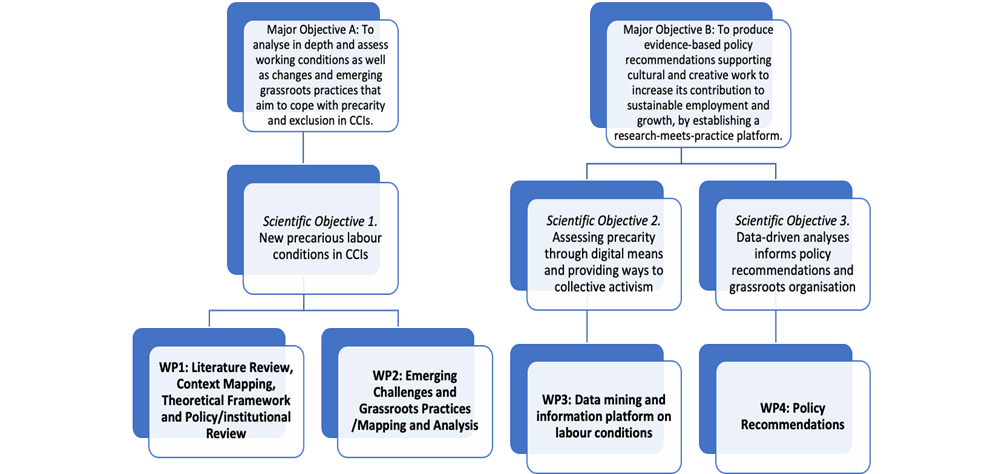lapresc project
background/goals
The study of labour in the Creative and Cultural Industries is critical not only for understanding the changes taking place in the relevant sectors, but also to reflect on the wider transformations of employment in contemporary labour markets. As a result, although limited to the examination of labour within CCIs, LaPreSC has the potential to reveal transitions and processes that are relevant to a large array of professions and industries that are increasingly marked by employment precarity and socio-economic vulnerability.
Although limited to the examination of labour within CCIs, LaPreSC has the potential to reveal transitions and processes that are relevant to a large array of professions and industries that are increasingly marked by employment precarity and socio-economic vulnerability.
In Greece, academic research on these issues is still scarce compared to other international contexts, despite the priority set by the Europe 2020 strategy to increase the contribution of the CCIs to sustainable employment and growth. Simultaneously, links and synergies between academic research and the world of creative labour that it examines appear weak and opportunistic. Consequently, both an in-depth analysis by researchers and the deployment of outcomes by stakeholders are impeded.
Major Objective A
To analyse in depth and assess working conditions as well as changes and emerging grassroots practices that tackle precarity and exclusion in CCIs.
Major Objective B
to produce evidence-based policy recommendations supporting cultural and creative work, to increase its contribution to sustainable employment and growth, by establishing a research-meets-practice platform.

